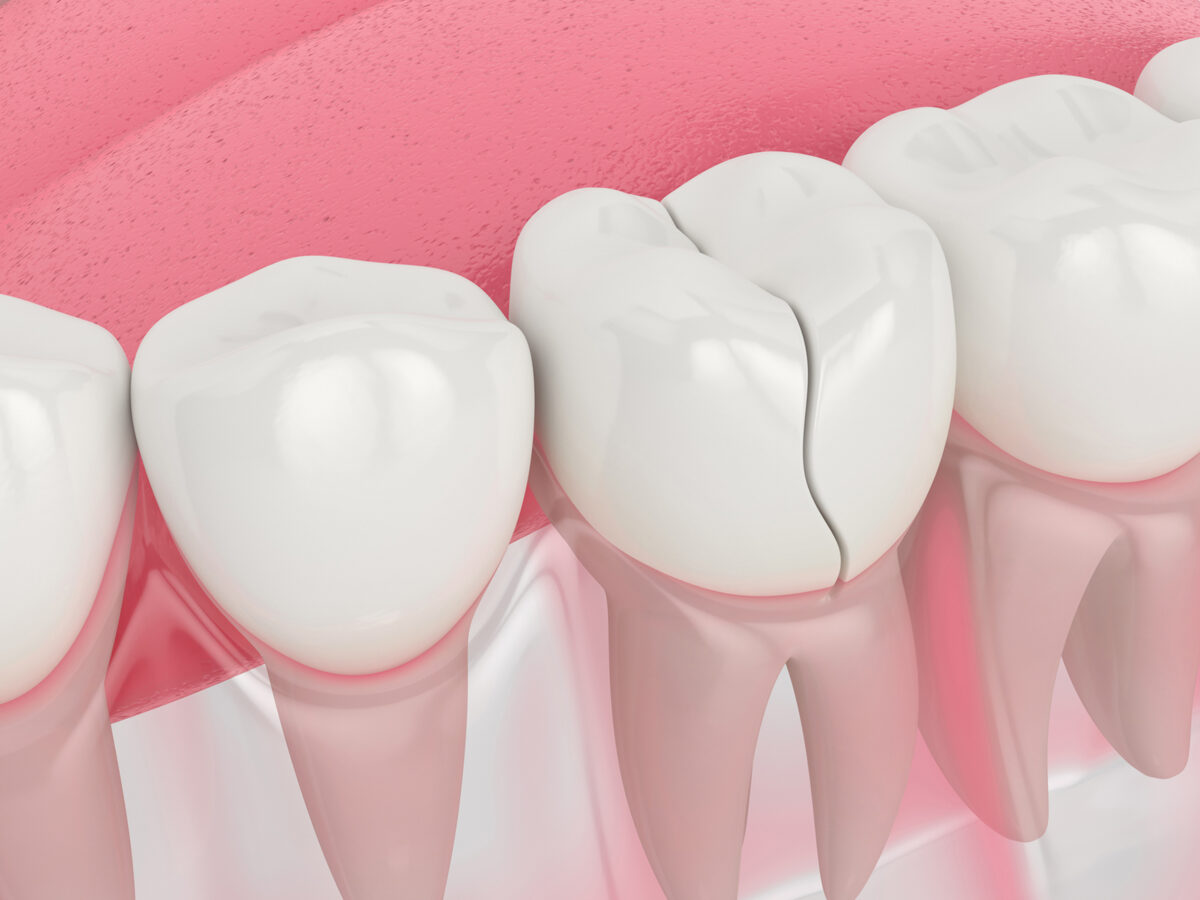River Walk Dental Orthodontics
Blog
Dental hygiene tips for healthy teeth & gums

Cracked Tooth Syndrome
A cracked tooth can arise due to chewing on hard foods, grinding your teeth at night, or even as you become older. It is a prevalent condition that is the primary cause of tooth loss in different individuals. Symptoms for cracked tooth syndrome might range from unpredictable pain when chewing to acute pain when the teeth are exposed to extreme hot or cold, depending on whether the tooth breaks due to an injury or general wear and tear. In many circumstances, the pain may come and go, and your dentist may have trouble locating the aching tooth, especially if it is minor.
Symptoms:
There aren’t always signs and symptoms of a cracked tooth. However, when it does, the following are some of the most common:
- a sudden sensitivity to sweetness
- sensitivity to hot or cold foods
- recurring toothache
- difficulty in determining the source of discomfort around the teeth and gums
- pain while chewing or biting food
- inflamed gums around the cracked tooth
Causes:
Teeth can be cracked due to a variety of reasons which includes:
- physical harm
- extreme teeth grinding
- an extensive filling that is causing the remaining tooth structure to weaken
- Sudden temperature change can also crack a tooth. For example, if a person burns their mouth while drinking tea and then drinks a glass of cold water to relieve the pain, this could happen.
- chomping down on a piece of food too hard
Treatment:
Cracked teeth come in a variety of shapes and sizes. The type, location, and amount of the crack determine the treatment and outcome for your tooth.
Craze Lines
Craze lines are minute cracks that only affect the outer layer of the enamel. Adult teeth are prone to such cracks. Craze lines are pretty shallow and painless.
Bonding
Your doctor fills the crack with a plastic resin in this treatment and restores its appearance and function.
Dental Crown
A dental crown is a prosthetic device composed of porcelain or ceramic that replaces a missing tooth. It covers or caps the injured tooth.
Root Canal
When the crack extends into the pulp, the dentist will propose a root canal to remove the damaged pulp and restore the tooth’s structure. This treatment can save the tooth from getting infected or worsening further.
Extraction
When the tooth’s structure and the nerves and roots beneath it are severely injured, extraction may be the only alternative.
Prevention:
Any discomfort caused by a cracked tooth is temporary. Anyone who feels they have a cracked tooth should schedule an appointment with a dentist right away. While cracked teeth cannot be totally avoided, there are some precautions you may take to make your teeth less vulnerable to cracks.
- Make sure you’re not clenching or grinding your teeth.
- Consult your dentist about acquiring a retainer or alternative mouth guard to protect your teeth if you grind your teeth at night.
- When participating in contact sports, wear a mouth guard or a protective mask.
- Hard things, such as ice, unpopped popcorn kernels, or pens should not be chewed.
- Teeth that are strong are less likely to crack, so maintain good oral hygiene. Brush your teeth twice a day, floss regularly, and see your dentist for preventive care after every six months.
Book Appointment to find out which treatment might be best for you.
